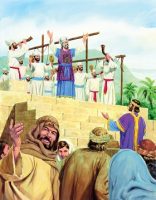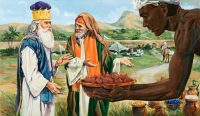Monday: Remembering History and the Praise of God
Daily Lesson for Monday 4th of March 2024 Read Psalms 105:1-45. What historical events and their lessons are highlighted in this psalm? Psalms 105:1-45 recalls key events that shaped the covenantal relationship between the Lord and His people Israel. It focuses on God’s covenant with Abraham to give the Promised Land to him and his … Continue reading –>









